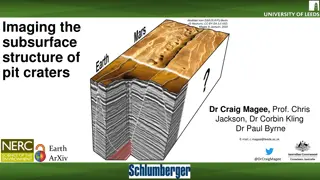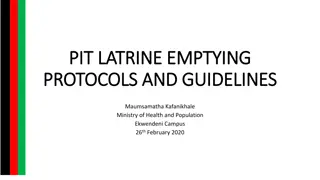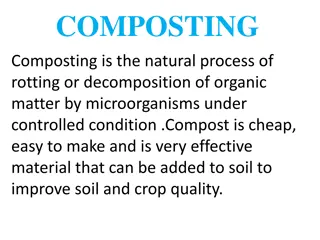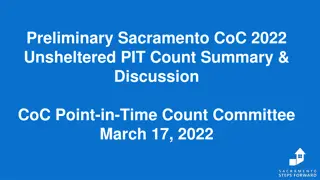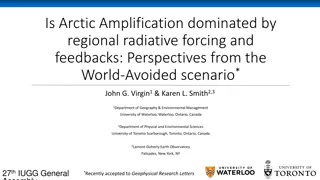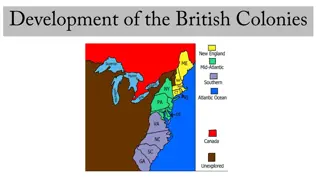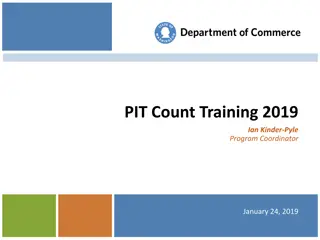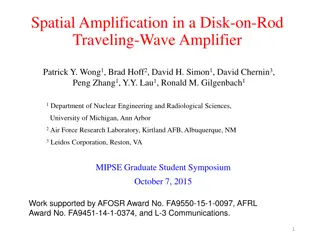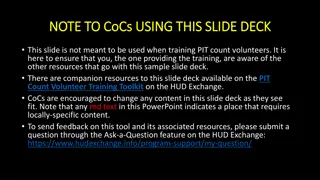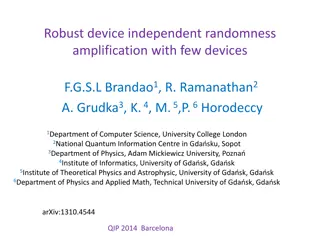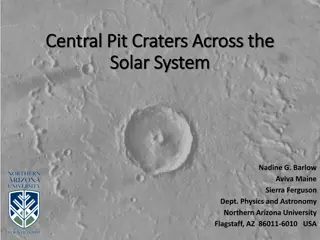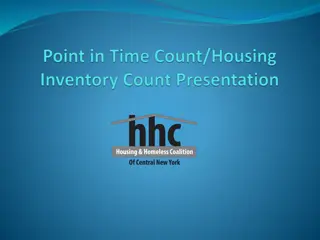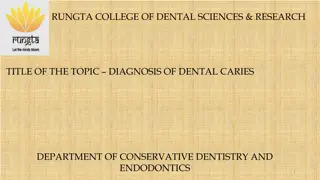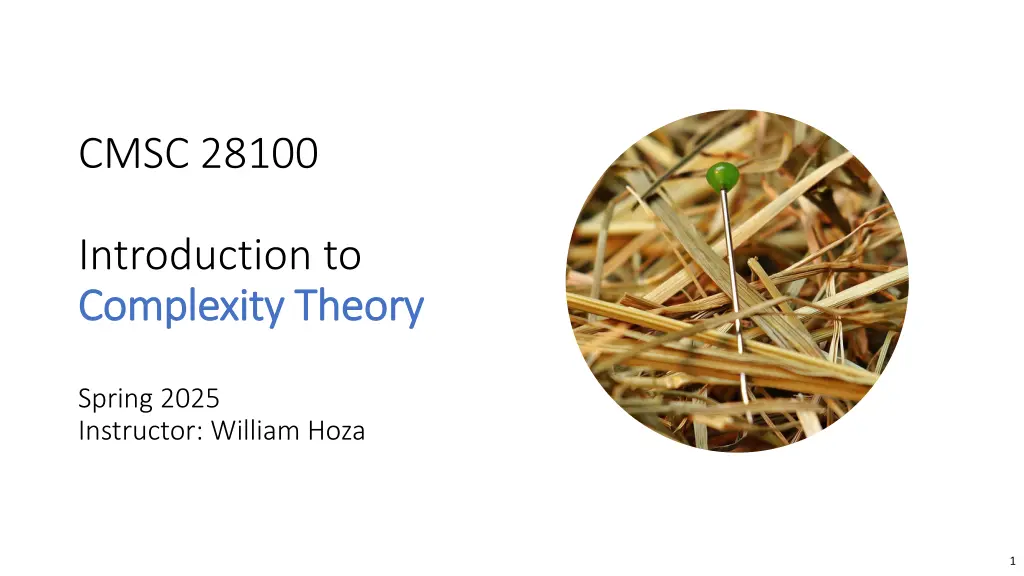
Introduction to Complexity Theory Spring 2025
Explore topics like arithmetic formulas, polynomial identity testing, evaluating arithmetic formulas, and more in the complex world of Complexity Theory. Join the course to dive deep into computational complexity with Professor William Hoza.
Download Presentation

Please find below an Image/Link to download the presentation.
The content on the website is provided AS IS for your information and personal use only. It may not be sold, licensed, or shared on other websites without obtaining consent from the author. If you encounter any issues during the download, it is possible that the publisher has removed the file from their server.
You are allowed to download the files provided on this website for personal or commercial use, subject to the condition that they are used lawfully. All files are the property of their respective owners.
The content on the website is provided AS IS for your information and personal use only. It may not be sold, licensed, or shared on other websites without obtaining consent from the author.
E N D
Presentation Transcript
CMSC 28100 Introduction to Complexity Theory Complexity Theory Spring 2025 Instructor: William Hoza 1
Arithmetic formulas Definition: A ?-variate arithmetic formula is a rooted binary tree Each internal node is labeled with + or Each leaf is labeled with 0, 1, 1, or a variable among ?1, ,?? + + ?1 ?1 ?2 ?2 1 2
Polynomial identity testing Problem: Given an arithmetic formula ?, determine whether ? 0 As a language:PIT = ? ? is an arithmetic formula and ? 0 Open Question: Is PIT P? Next 10 slides: We will prove PIT BPP 3
Evaluating an arithmetic formula Let ? be a ?-variate arithmetic formula and let ? ? Lemma: Given ?, ? , one can compute ? ? in polynomial time. 12 ?1= 2 6 2 ?2= 4 + + 4 ? ?1,?2 = 12 ?2 ?1 ?1 2 4 2 Possible concern: How big can these numbers get? ?2 1 4 4
Bound on the magnitude of the output Let ? = max ?1, ?2, , ??,2 and let ? be the number of leaves ??. Proof by induction: Claim: ? ? Base case: ? = 1: trivial ??? ???= ?? If ? ? = ?? ? ?? ? , then ? ? = ?? ? ?? ? ???+ ??? ?? If ? ? = ?? ? + ?? ? , then ? ? ?? ? + ?? ? 5
Evaluating an arithmetic formula Let ? be a ?-variate arithmetic formula and let ? ? Lemma: Given ?, ? , one can compute ? ? in polynomial time. Proof sketch: Evaluate the nodes one by one, starting at the leaves ? 2? and ? ?, so each node outputs ? such that ? ?? 2?2 In other words, ? is an ? ?2-bit integer There are ? ? nodes, and we can do arithmetic in polynomial time 6
Note on standards of rigor Going forward, when we analyze specific algorithms, we will often assert that they run in polynomial time without a rigorous proof In each case, one can rigorously prove the time bound by describing a TM implementation and reasoning about the motions of the heads But this is tedious Note: We still prove correctness whenever it is nontrivial, just not efficiency You should follow this convention on exercise 14 and beyond 7
Polynomial identity testing We are given ? , where ? is an arithmetic formula Goal: Figure out whether ? 0 If ? 0, then ? ? = 0 for all ? Even if ? 0, there still might be some ? such that ? ? = 0 How often can this occur? 8
How many roots can a nonzero degree-? two-variable polynomial have? Counting roots B: Up to ?2 A: Up to ? D: Only finitely many, but there is no bound in terms of ? C: It might have infinitely many Respond at PollEv.com/whoza or text whoza to 22333 Fundamental Theorem of Algebra Every nonzero degree-? univariate polynomial has at most ? real roots What about a multivariate polynomial? 9
Polynomial Identity Lemma Even if ? 0, it might have infinitely many roots ? = ? ?2 Intuition: Roots are nevertheless rare Let ? ? be a multivariate polynomial of degree at most ? in each variable individually Let ? and assume ? is finite Polynomial Identity Lemma: If ? 0, then ? 10 ?? ?? ?? 1 10
Polynomial Identity Lemma: If ? 0, then ?10 ?? ?? ??1 ? ??? ?? and suppose ? 0 Proof when ? = 2: Write ? ?,? = ?=0 ? 10 ?2= ? ? ? ?,? = 0 ? ? = ? ? ? ?,? = 0 + ? ? ? ?,? = 0 ? ? =0 ? ? + ? ? ? ? 0 Fundamental Theorem of Algebra = 2? ? 11
Theorem: PIT BPP Given ? with ? variables and ? leaves: 1. Let ? = 1, ,3?? Polynomial time 2. Pick ? ?? uniformly at random 3. Compute ? ? Correctness proof: 4. If ? ? = 0, accept, otherwise reject Degree ? (prove by induction) If ? 0, then Pr accept = 1 If ? 0, then by the Polynomial Identity Lemma, we have ? 10 ?? ?? ?? ?? 1 ?? 3??=1 Pr accept = Pr ? ? = 0 = = ?? 3 12
Polynomial identity testing: Recap It is an open question whether PIT P We proved PIT BPP Does that mean we should consider PIT tractable? 13
The complexity class BPP Definition:BPP is the set of languages ? 0,1 such that there exists a randomized polynomial-time Turing machine that decides ? with error probability 1/3 14
Amplification lemma Suppose a language ? 0,1 can be decided by a time-? Turing machine ?0 with error probability 1/3 Let ? be any constant Amplification Lemma: There exists a randomized time-? Turing machine that decides ? with error probability 3 ??, where ? ? = ? ? ? ??. As ? , the error probability goes to 0 extremely rapidly! 15
If ?0 uses ?(?) many random bits, then how many random bits does the new TM use? Proof of the amplification lemma (1 slide) A:? ? + ?? B:?(?) ?? For simplicity, assume that for every ? ?, we have Pr ?0 accepts ? = 1 C:? ?? D: Not enough information For ? ?, we merely assume Pr ?0 accepts ? 1/3 Respond at PollEv.com/whoza or text whoza to 22333 Given ? 0,1?: For ? = 1 to ??: 1) Time complexity: ? ? ? ?? Simulate ?0 on ? using fresh random bits. If it rejects, reject. a) 2) Accept. If ? ?, then Pr ? accepts ? = 1 If ? ?, then Pr ? accepts ? 1/3??= 1/3?? 16
BPP as a model of tractability Because of the amplification lemma, languages in BPP should be considered tractable A mistake that occurs with probability 1/3100 can be safely ignored (Even if you use a deterministic algorithm, can you really be 100% certain that the computation was carried out correctly?) 17
Extended Church-Turing Thesis Extended Church-Turing Thesis: For every ? 0,1 , it is physically possible to build a device that decides ? in polynomial time if and only if ? P. Is PIT a counterexample? 18


